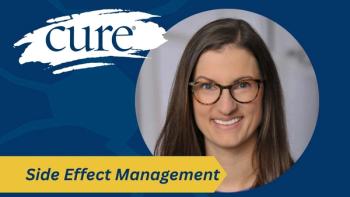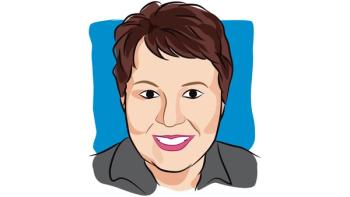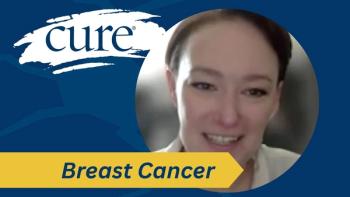
Questions to Ask Your Lung Cancer Doctor
Transcript:Mark A. Socinski, MD: The 2 most important bits of information that you need to know, with every patient (or what the patient needs to know), is, what their diagnosis is (including molecular testing), and what their stage of disease is. That dictates all of our treatment options. I think it’s important for physicians to explain these things to patients, and patients should view their relationship with their doctors as a partnership. This is a journey that you are going on with your oncologist. You have to trust that person, and you have to make that person know what your preferences are for treatment.
The job of the oncologist is to try to inform you, in your particular case (with all the nuances of every case being different), of what the options are. And in reality, patients don’t often have enough experience or knowledge base to make certain judgments. And that’s where you need to rely on and trust your oncologist to help you make those judgments and help you understand why these decisions are being made, the basis or the facts upon which they are being made, and be reassured that every stone has been turned over, looked under, and that all the information is there. You should ensure that there are no outstanding questions about diagnosis or stage. There may be different options, and you know that, in each case, the oncologist may have an opinion about which option may be best. You have to give that guidance to the patient with a rationale as to why that is.
Edward S. Kim, MD: The most important resource, when we talk about doing research, clinical trials, or drug testing, is the patient. We learn so much from them. We learn about their tumor and their genetic makeup, and how different agents—chemotherapies or targeted therapies—affect their tumors. So they have to be central to this entire discussion. I always tell patients, when I see them, “Look, I’m here to give you information. This is your disease. I’m going to be there to help you through this journey, but you need to be informed of it.” Sometimes patients are very overwhelmed. An individual patient can’t process all of this information emotionally, or on other levels. And that’s why they have family there. I think it’s very important to have a family member or a friend with you to hear these things. Many times, what also happens is you have family members that maybe you didn’t really even talk to, and now you’re getting emails of websites on things that they’re finding for you.
The information that is out there, that’s accessible, is quite large. It can be overwhelming. So it’s really important to have a very frank, open, and transparent discussion with your oncologist. Make sure you feel informed. If you’re asking questions, and you’re not getting answers that you think are adequate, then you need to find help and find other resources. Maybe that’s a second opinion, and that’s okay. I’ve worked on both sides. Some patients come to me because they have seen someone else, and what I say either reinforces what they feel or reinforces that they are in the right hands with their original provider. I think that’s always important, but the patient has to be central to this.
Now, what’s the role of the oncologist at this point? It’s to make sure the patient has all the information they need to help make a decision. And then the question, invariably, always comes back to, “If this was your mother, or your brother, or your family member, what would you do, Dr Kim? And I feel very comfortable answering that question, because that makes you weigh factors such as, what is the best drug? What is the best procedure? It’s important to weigh in what the benefits of the drugs are versus the side effects of the drugs. If you’re going to do it to your own family member, and, of course, the caveat is you’re in good standing with that family member, then that’s the answer you need to give. And that’s the answer you should hear. You should feel very open to ask that question. It is your life and it does involve treatment, and there are going to be ups and downs. But the goal is that we’re trying to take it one step at a time. It is a journey. We can never predict how long that journey is going to be, but you’ve got to start someplace.
Mark A. Socinski, MD: The important questions for patients to be asking their healthcare providers, again, include: are you sure of the diagnosis? Has enough been done from a molecular testing point of view? Are you absolutely sure that I don’t have one of these driver mutations? What’s the rationale for why you’re recommending this treatment? What is the treatment going to look like? What is the treatment schedule and what is the expectation? What are the common complications or side effects of the treatment? What’s the plan for supportive care management of those side effects? Are there things that can be severe that I should be aware of? How do I communicate with you in your office? (Usually that’s through oncology nursing, which is quite effective).
That all has to be part of the initial questions to an oncologist so that if you’re in a situation at 10 o’clock at night, where something happens, you have a clear path to know where to go and you’re not wondering about what to do at that particular point. So those are the questions that I think patients need to ask. It’s important to make sure that they really have a good plan. They’re only in the doctor’s office a very limited amount of time relative to the rest of their life.
Transcript Edited for Clarity



